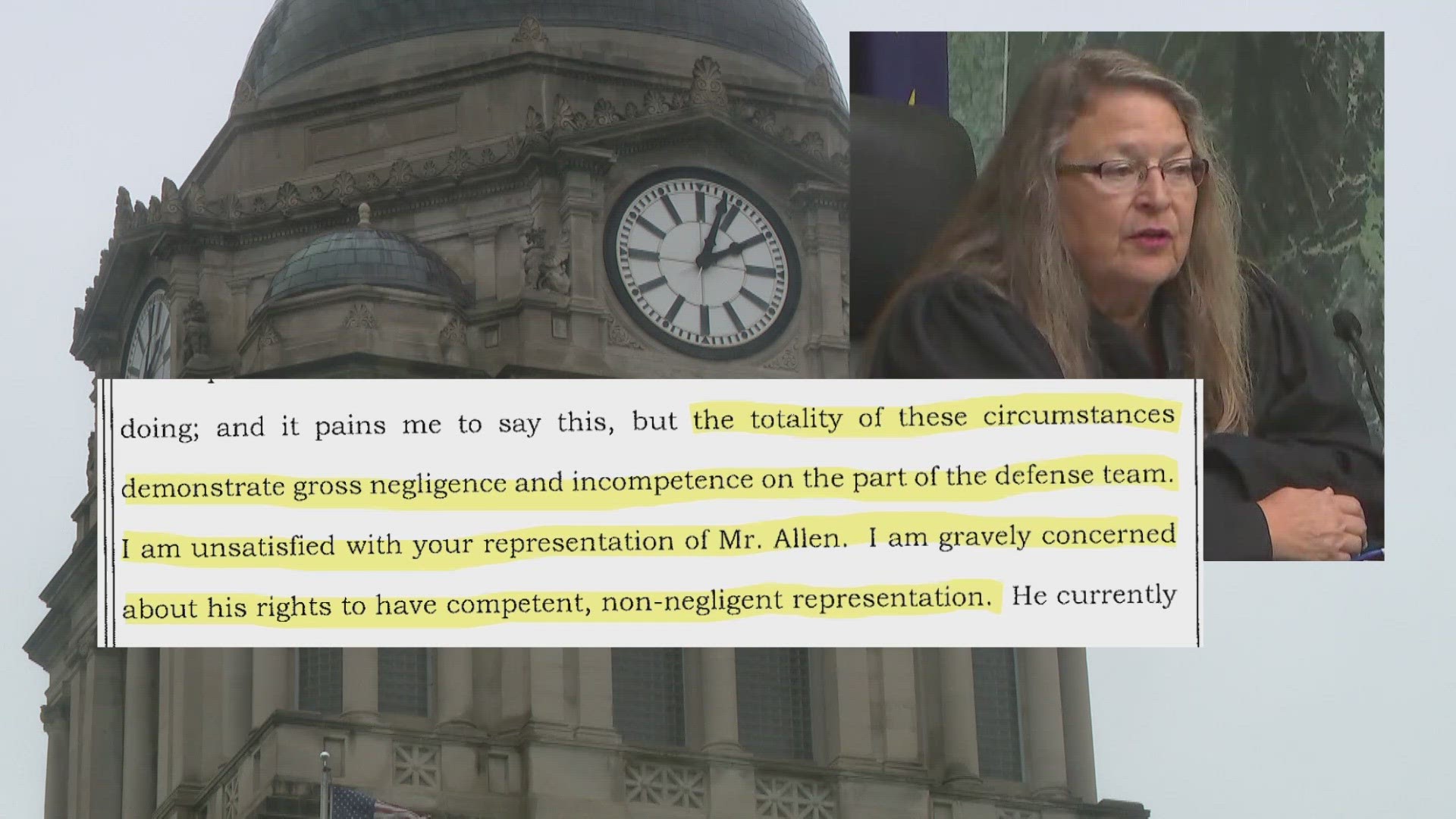DELPHI, Ind. — Attorneys for Richard Allen are telling the Indiana Supreme Court the judge in the Delphi murders case is still "wrong" in her handling of it.
It comes after the special judge, Frances Gull, defended her actions in a filing.
Gull had said Allen, through his attorneys, is complaining about issues that happened months ago, instead of bringing up any issues in an expeditious way. Further, she claimed Allen has not shown that denying the motion will "result in extreme hardship to himself." In fact, she stated Allen has complete access to all the documents needed in his case.
Gull stated any issues Allen or his attorneys have, they will be able to bring up in appeal.
The judge goes on to claim all documents that are non-confidential have now been ordered to be publicly accessible. She said entering court documents to make them publicly accessible falls under the county clerk's office, not the judge.
Gull goes on to assert claims – "parties 'agreed' that documents would be sealed without valid grounds to do so" – never happened.
In their response to the judge, Allen's attorneys said they appreciated she had "corrected a few of the errors that had left the media and public largely in the dark about this case." However, they claim the access she granted to documents only covers 20% of those that should be made public.
They then said other points in her response "indicate a continued misunderstanding and misapplication" of mandates around access to court records.
Attorney Maggie Smith, representing Allen, argues the court is directly responsible for compliance with access to court records and said those mandates are not being followed. Smith argues, even if the documents had a legitimate reason to be sealed, there should be a form explaining why.
Smith goes on to argue that Gull instructed the court clerk to violate the access to public records requirement and then Gull blamed the clerk for following the judge's order.
The attorney argues the judge put herself in charge of policing which documents would be public or excluded and instructed her staff to change designations to keep certain documents hidden.
Smith then argues the State filed a request to exclude all future filings from public access on Sept. 25. That filing asked that court reviews those documents before deciding if they will be publicly released. Smith notes that a decision on that filing needed to be done in a reasonable amount of time and a hearing has not been set yet – more than two months later.
The filing then goes on to note that Allen's original criminal defense attorneys filed with the court a letter explaining why they believed they should not have been disqualified from the case after a leak of evidence, but that letter was improperly excluded from public access.
Smith asks the Indiana Supreme Court to require all the alleged errors be corrected with access to court records.

